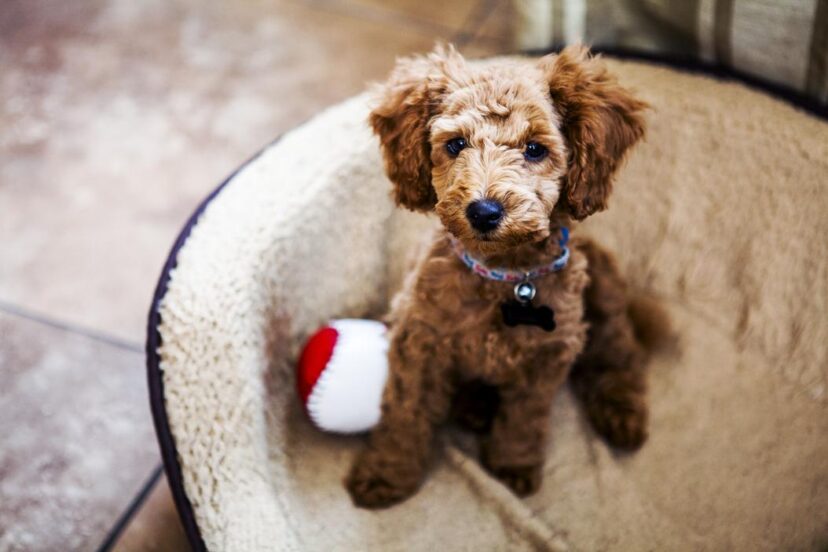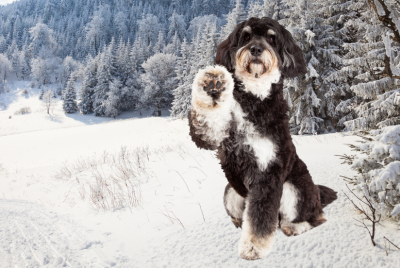Poodle Separation Anxiety: Addressing the Challenges of Leaving Poodles Alone
Introduction: Unraveling the Effects of Poodle Separation Anxiety
Poodles, cherished for their intelligence and companionship, are not immune to the challenges of separation anxiety. This article delves into the depths of poodle separation anxiety, shedding light on its impact and providing valuable insights and strategies to help alleviate this condition when poodles are left alone.
Poodle Separation Anxiety: Understanding the Root Cause
Poodle separation anxiety stems from their deeply social nature and their strong attachment to their human family. These intelligent and affectionate creatures thrive on human companionship, making them susceptible to anxiety when separated from their loved ones. Understanding the root cause of poodle separation anxiety is crucial in addressing and managing this condition effectively.
Recognizing the Signs of Poodle Separation Anxiety
To identify if your poodle is experiencing separation anxiety, watch out for these common signs:
1. Excessive Barking or Whining: Poodles may vocalize excessively, expressing their distress and longing for companionship when left alone.
2. Destructive Behavior: Poodles suffering from separation anxiety may engage in destructive behaviors such as chewing furniture, scratching doors, or digging at carpets in an attempt to alleviate their anxiety.
3. Potty Accidents: Anxious poodles may have difficulty controlling their bladder and bowels when left alone, leading to accidents in the house.
4. Restlessness and Pacing: Poodles with separation anxiety may exhibit restless behavior, constantly moving around the house or pacing in anticipation of their owners’ return.
Strategies to Alleviate Poodle Separation Anxiety
While complete elimination of isolation anxiety may not be possible, there are effective strategies to mitigate its impact and help your poodle feel more comfortable when left alone.
1. Gradual Desensitization
Gradually exposing your poodle to short periods of alone time can help desensitize them to the experience. Start with brief absences and gradually increase the duration, rewarding calm and relaxed behavior with treats and positive reinforcement.
2. Create a Safe and Comfortable Space
Designate a specific area in your home where your poodle can retreat to when alone. Make it comfortable with their favorite toys, bedding, and a piece of your clothing that carries your scent, providing them with a sense of security and familiarity.
3. Establish a Consistent Routine
Poodles thrive on routine, so establish a consistent daily schedule for feeding, exercise, and alone time. Predictability and structure can help alleviate anxiety by providing a sense of stability.
4. Interactive Toys and Puzzles
Engage your poodle’s mind and keep them occupied with interactive toys and puzzles. These mental challenges not only distract them from anxiety but also provide mental stimulation and enrichment.
5. Calming Techniques
Implement calming techniques such as playing soothing music, using pheromone diffusers, or providing access to a comfortable crate or den-like space where your poodle can feel secure and protected.
6. Seek Professional Guidance
If your poodle’s separation anxiety persists or worsens despite your efforts, consult a professional dog behaviorist or trainer who specializes in separation anxiety. They can offer tailored advice and techniques to address your poodle’s specific needs.
Frequently Asked Questions about Poodle Separation Anxiety
Q1: Can poodle separation anxiety be cured completely?
A1: While complete elimination of separation anxiety may not always be possible, it can be managed effectively with appropriate strategies and training to improve your poodle’s well-being and comfort when left alone.
Q2: Will getting another pet help alleviate poodle isolation distress?
A2: Introducing another pet is not a guaranteed solution for separation anxiety. While some poodles may benefit from the companionship of another pet, it is important to address and manage the underlying anxiety through proper training and behavior modification.
Q3: Can medication help with poodle separation anxiety?
A3: In severe cases, medication prescribed by a veterinarian may be recommended to assist in managing poodle separation anxiety. However, medication should be used in conjunction with behavioral interventions and under the guidance of a professional.
Q4: Can poodle separation anxiety improve with age?
A4: Poodle isolation anxiety may improve as they mature, but this is not the case for all individuals. Early intervention, training, and consistent management are key to addressing separation anxiety effectively.
Q5: How long does it take for poodles to adjust to being left alone?
A5: The time it takes for poodles to adjust to being left alone varies depending on the individual and the severity of their separation anxiety. Consistency, patience, and a gradual desensitization process can aid in the adjustment period.
Q6: Can professional dog walkers or pet sitters help with Poodle isolation anxiety?
A6: Professional dog walkers or pet sitters can provide companionship and stimulation for your poodle during periods of absence, which can help alleviate isolation anxiety. Ensure that the individuals you choose are experienced and trustworthy.
Conclusion: Nurturing Your Poodle’s Emotional Well-being
Poodle separation anxiety is a real challenge that requires understanding, compassion, and proactive measures. By recognizing the signs, implementing effective strategies, and seeking professional guidance when needed, you can help alleviate your poodle’s anxiety and promote their emotional well-being. Remember, a happy and content poodle is a result of your dedication and commitment to their comfort and happiness.




